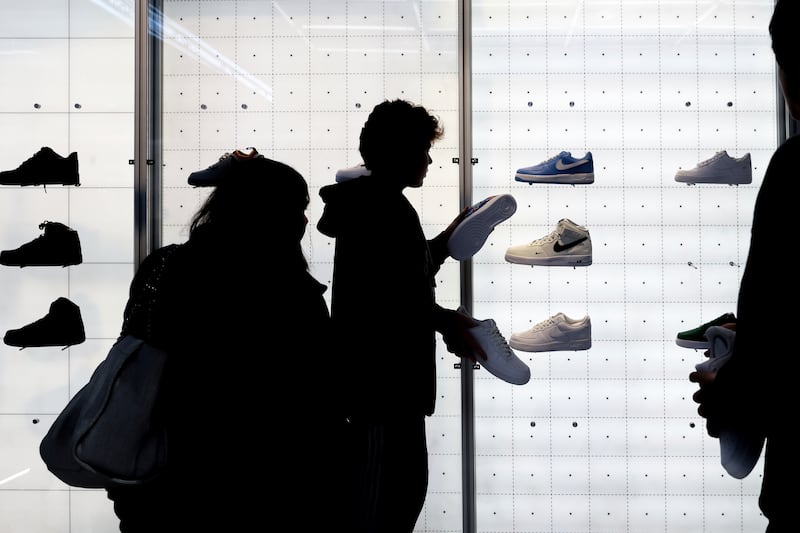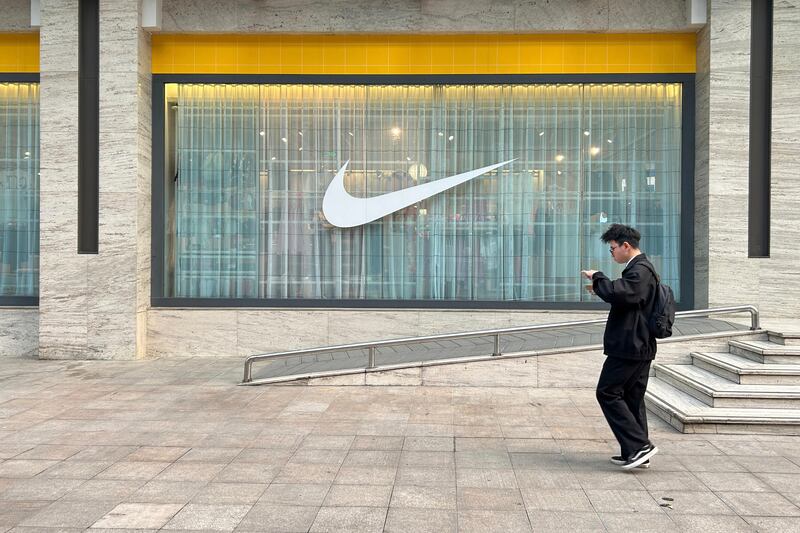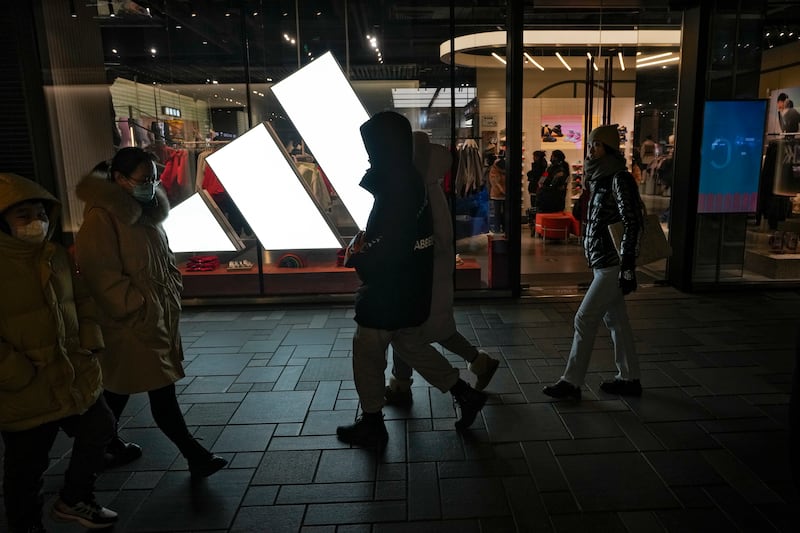- Shares in major sportswear brands tumbled after Trump's global tariff announcement.
- Vietnam, a key manufacturing source, faces one of the highest tariffs.
- Consumers are likely to pay more for Nike and Adidas sneakers.
Stock in major sportswear brands took a nosedive Thursday on the heels of President Donald Trump’s new slate of global tariffs that will hit the sources of their products particularly hard.
Nike, Adidas, Puma and others saw shares drop sharply after Trump imposed hefty tariffs on countries, including Vietnam, Indonesia and China, where those companies make many of their products, according to Sports Business Journal.
The International Apparel Federation, which represents garment manufacturers in 40 countries, called the tariffs a “major shock.”
“Ultimately, someone will have to pay the price,” the association said in a statement, per Reuters.
That someone would be the consumer as prices for Nike or Adidas shoes are likely to rise.

Vietnam a key sportswear source
A country facing one of the highest new tariffs, Vietnam at 46%, has become a dominant sourcing locale for Nike, Adidas, On Holding and others.
“Vietnam has largely replaced China as the main sourcing country for athletic footwear imports, especially after Trump imposed hefty tariffs on Chinese imports during his first presidential term. ING analysts wrote in a note that ‘Vietnam and Taiwan stand out with the highest total exposure to U.S. imports — and with large direct exposure,‘" per Front Office Sports.
Nike makes about 50% of its footwear and 28% of its apparel in Vietnam, while rival Adidas relies on Vietnam for 39% of its footwear and 18% of its apparel. The Swiss athletic shoe and sportswear company On makes 90% of its shoes in Vietnam.

Lululemon, Columbia Sportswear and Amer Sports, which owns Salomon and Arc’Teryx, count Vietnam as their top manufacturing country.
“While many brands have been diversifying out of China (54% rate) over the past decade, countries where they have generally diversified to — such as Vietnam, Cambodia, Bangladesh and Indonesia — are all facing 30+% tariff rates,” a Bernstein analyst wrote.
Cambodia was targeted with 49% tariff, Bangladesh with 37% and Indonesia with 32%.
No place to hide from tariffs
“Companies that worked hard over the years to reduce reliance on China by leaning into countries like Vietnam just learned there really isn’t a place to hide,” BMO Capital Markets analyst Simeon Siegel said, per Reuters.

Nike and Adidas did not reply to Reuters’ requests for comment on the tariffs. On Holdings said it is “constantly monitoring the evolving situation,” while Puma said it is evaluating the situation and “will react swiftly.”
“Some companies might be able to change where they produce for the U.S. market, but that usually takes years, not days,” said Brian Jacobsen, chief economist at Annex Wealth Management. “Prices may rise, consumers might balk, costs will increase. It’s not a pretty picture for profit margins.”


